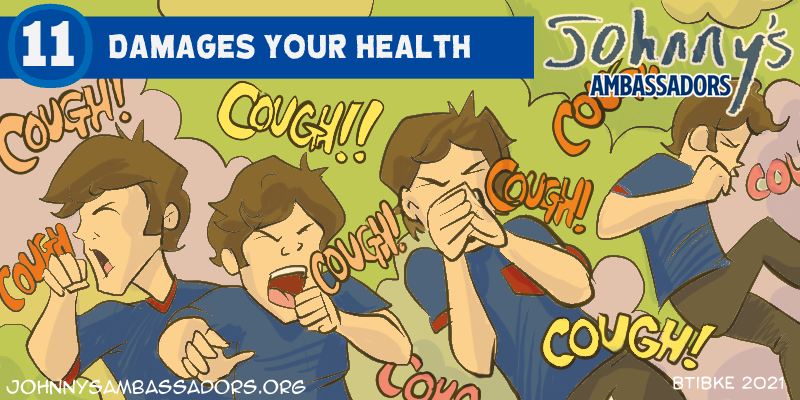By Laura Stack
There’s a lingering belief among marijuana advocates and large sections of the public that marijuana is safer than tobacco. This myth most likely originated from an old misconception, akin to comparing apples to oranges; not just because of the inherent differences between the plants, but because the two have typically been prepared and administered differently.
By the 1980s, tobacco had been subject to centuries of specialized breeding, and commercial products were often spiked with extra nicotine to make them more potent and addictive. Many users smoke one to three packs daily, amounting to 20-60 cigarettes—sometimes more. The most addictive users chain-smoke, igniting one cigarette from the embers of another, so they’re never without a drag.
Heavy marijuana smokers might smoke a few joints a day or hit a vape all day. Back in the early days, when marijuana was illegal everywhere and relatively rare, it was also weak, rarely exceeding 3% of the intoxicating chemical, THC. Therefore, marijuana users were sucking down a lot less smoke, and chemicals in general, than tobacco smokers. So while smoking pot has never been good for you, it’s justifiable to argue that it was less dangerous than cigarette smoking… back then.
Not anymore. Marijuana products have evolved far beyond herb and hashish, with some concentrated products approaching 100% THC content. Even herb marijuana has been bred to provide up to 34% THC by weight. These days, some marijuana products deliver the equivalent of seven or more “old time” joints in a single dose. The human body isn’t meant to handle so much THC at once.
This is especially true for young people, whose brains aren’t yet mature. THC latches onto receptors meant for crucial brain chemicals called endocannabinoids, stunting physical and brain growth, scrambling thoughts, interfering with sleep, raising anxiety, causing depression, and affecting other natural processes. The higher amounts of chemicals introduced into the body cause other effects, including heart disease, while raising the likelihood of mental defects like psychosis, schizophrenia, and suicidal ideation. The latter can lead to actual suicide.
Marijuana smokers often suffer chronic bronchitis-like symptoms, with deep coughing jags rivalling those of long-term tobacco smokers. This derives from severe lung and airway irritation and can lead to lung cancer. In the end, rates of cancers and other lung-related ailments among pot-smokers may match up with the tobacco data.
Excerpts from the American Lung Association’s official website include, “The American Lung Association is concerned about the health impacts of marijuana use, especially on lung health. Beyond just what’s in the smoke alone, marijuana is typically smoked differently than tobacco. Marijuana smokers tend to inhale more deeply and hold their breath longer than cigarette smokers, which leads to a greater exposure per breath to tar. Secondhand marijuana smoke contains many of the same toxins and carcinogens found in directly-inhaled marijuana smoke, in similar amounts if not more. Smoking marijuana clearly damages the human lung. Research shows that smoking marijuana causes chronic bronchitis and marijuana smoke has been shown to injure the cell linings of the large airways, which could explain why smoking marijuana leads to symptoms such as chronic cough, phlegm production, wheeze and acute bronchitis. We caution the public against smoking marijuana because of the risks it poses to the lungs.”
Overindulgence in marijuana can also cause death, though this is more rare. In illnesses like Cannabinoid Hyperemesis Syndrome, users die because they vomit so much they become terribly dehydrated. Then there’s the lowered IQ and lack of ambition long-term users show. These aren’t even all the negative health effects that marijuana can have, and it may be that other cannabis-related ailments may arise that we’re not yet aware of. It’s early yet, in terms of the medical history of marijuana.
The best advice remains to avoid marijuana altogether. If you know someone using marijuana, or if you suspect your kids are, make sure to share this information about the harms of marijuana.


